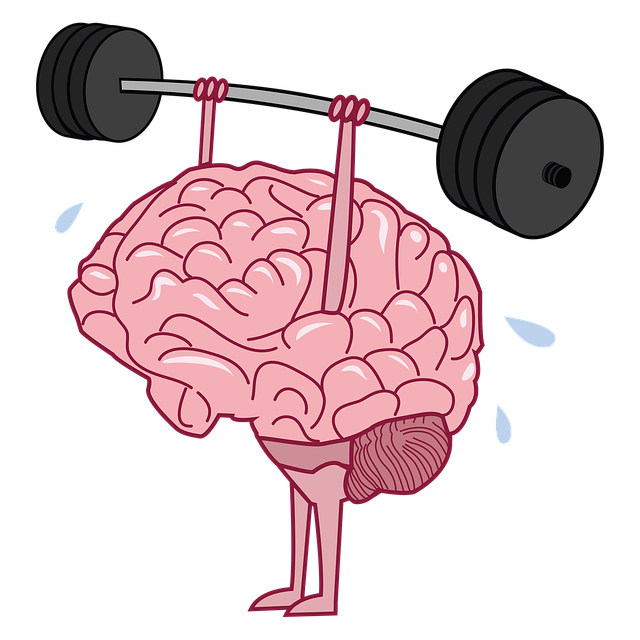Mental wellness is a crucial aspect of young adults' lives, but cultural barriers, like those in the ASL community, hinder access to effective therapy. Integrating ASL and culturally sensitive approaches into mental health services improves outcomes. Journaling, now accessible through podcasts for deaf individuals, enhances self-awareness, coping skills, confidence, and emotional regulation. Workshops utilizing ASL as a therapeutic tool are gaining popularity among young adults, fostering mindfulness and providing alternative emotional expression methods. Consistent journaling routines, with prompts like gratitude or reflection, aid in managing anxiety and building resilience, as demonstrated by real-life success stories of Sarah and Alex.
“Unleash your inner peace through the transformative power of mental wellness journaling. In today’s fast-paced world, young adults face unique stressors, and our comprehensive guide offers a sanctuary. We explore how this simple yet effective practice can mitigate stress and anxiety. Discover the unexpected benefits of integrating American Sign Language (ASL) into self-expression, fostering inclusivity. Learn practical tips to establish a consistent journaling routine, backed by inspiring success stories that showcase its profound impact on young lives.”
- Understanding Mental Wellness and its Impact on Young Adults
- The Power of Journaling as a Therapy for Stress and Anxiety
- Incorporating American Sign Language (ASL) in Self-Expression
- Creating a Journaling Routine: Tips and Strategies for Consistency
- Real-Life Success Stories: How Journaling Transformed Lives
Understanding Mental Wellness and its Impact on Young Adults

Mental wellness is a vital aspect of overall well-being, especially for young adults navigating their personal and professional journeys. In today’s fast-paced world, many individuals face unique challenges that can significantly impact their mental health. Young adults often struggle with issues like anxiety, depression, and stress related to academic pressures, career uncertainties, and social expectations. These experiences can be further complicated by cultural factors, especially for those from diverse backgrounds.
The American Sign Language (ASL) community, for instance, faces unique barriers in accessing mental health services. Cultural competency training for healthcare providers is essential to ensure effective support for young adults within this community. Self-awareness exercises and trauma support services tailored to address cultural nuances can make a profound difference. By incorporating ASL interpretations and understanding the specific challenges faced by young adults in diverse cultures, therapy becomes more inclusive and accessible, promoting better mental wellness outcomes.
The Power of Journaling as a Therapy for Stress and Anxiety

Journaling has emerged as a powerful therapy for young adults dealing with stress and anxiety. By putting thoughts and feelings into words, individuals can better understand their emotional landscape. This introspective practice allows for the processing of experiences, often leading to increased self-awareness and improved coping mechanisms. For those who use American Sign Language (ASL), specialized mental wellness podcast series production has made journaling accessible through audio recordings and text translations, ensuring cultural sensitivity in mental healthcare practice.
This methodical approach not only helps in managing anxiety but also boosts confidence. By documenting both the struggles and triumphs, individuals can trace their progress over time, which is motivating. Moreover, the act of journaling encourages a mindful presence, teaching individuals to observe their thoughts without judgment, thereby fostering better emotional regulation skills that extend beyond the pages of their journal.
Incorporating American Sign Language (ASL) in Self-Expression

Incorporating American Sign Language (ASL) into journaling can be a powerful tool for young adults seeking therapy and exploring self-expression. ASL offers a unique and creative avenue for individuals to communicate their emotions, especially those who might find verbal expression challenging. This visual language allows for non-verbal reflection and can be an excellent coping skill development method, enabling them to articulate internal thoughts and feelings that may be hard to put into words.
For those dealing with depression prevention or stress management, ASL journaling provides a therapeutic outlet. It encourages mindfulness and self-awareness by translating experiences and emotions into signs, fostering a sense of control and understanding. Many organizations now offer workshops centered around this concept, teaching sign language as a means to enhance mental wellness, particularly within the young adult population.
Creating a Journaling Routine: Tips and Strategies for Consistency

Creating a consistent journaling routine can be a game-changer for young adults seeking therapy and coping skills development. Start by setting aside a dedicated time each day or week that feels manageable within your schedule. Some find it helpful to choose a specific time, like right before bed or during their morning coffee, to reflect on the day’s experiences. Consistency is key; try to journal regularly to build momentum and make it a lasting habit.
Consider using prompts to guide your entries if you’re new to journaling. These can range from simple questions like “What made me feel grateful today?” to more open-ended prompts like “Describe a moment that challenged my confidence and what I learned from it.” Incorporating American Sign Language (ASL) into your journaling practice offers an additional creative outlet for expression, especially for those who are comfortable with the language. Whether it’s drawing pictures or writing in ASL-inspired scripts, this unique approach can enhance the therapy process and provide a different avenue for processing emotions, particularly for those seeking anxiety relief or a confidence boost.
Real-Life Success Stories: How Journaling Transformed Lives

Journaling has been a game-changer for many individuals navigating mental wellness challenges, especially young adults. Real-life success stories abound, with people sharing how this simple practice transformed their lives. For instance, consider Sarah, who struggled with anxiety and found solace in expressing her thoughts on paper. By journaling about her feelings and experiences, she developed a deeper understanding of her triggers and learned coping mechanisms that improved her overall well-being.
In another story, Alex, who identified as deaf in the American Sign Language community, used journaling as a form of self-care routine development for better mental health. It provided a safe space to process complex emotions, especially during periods of burnout prevention. Through writing, Alex discovered new perspectives and found peace amidst life’s storms. These narratives highlight how a seemingly ordinary habit can become a powerful tool in therapy for young adults, offering anxiety relief and fostering a sense of empowerment on their journey towards better mental health.
Mental wellness journaling offers young adults a powerful therapy for managing stress and anxiety, with the added benefit of incorporating American Sign Language for enhanced self-expression. By understanding the impact of mental health on this demographic and leveraging the effectiveness of journaling, individuals can create a consistent routine that fosters emotional well-being. Real-life success stories highlight the transformative potential of this practice, making it a valuable tool for anyone seeking to navigate life’s challenges with greater resilience.










